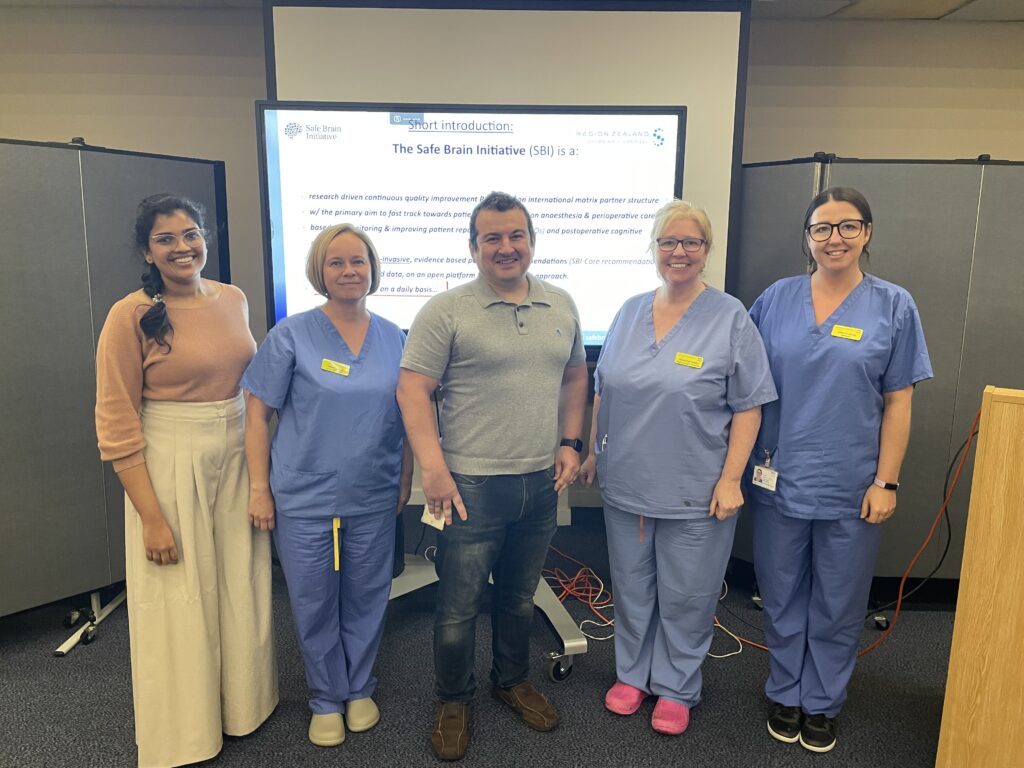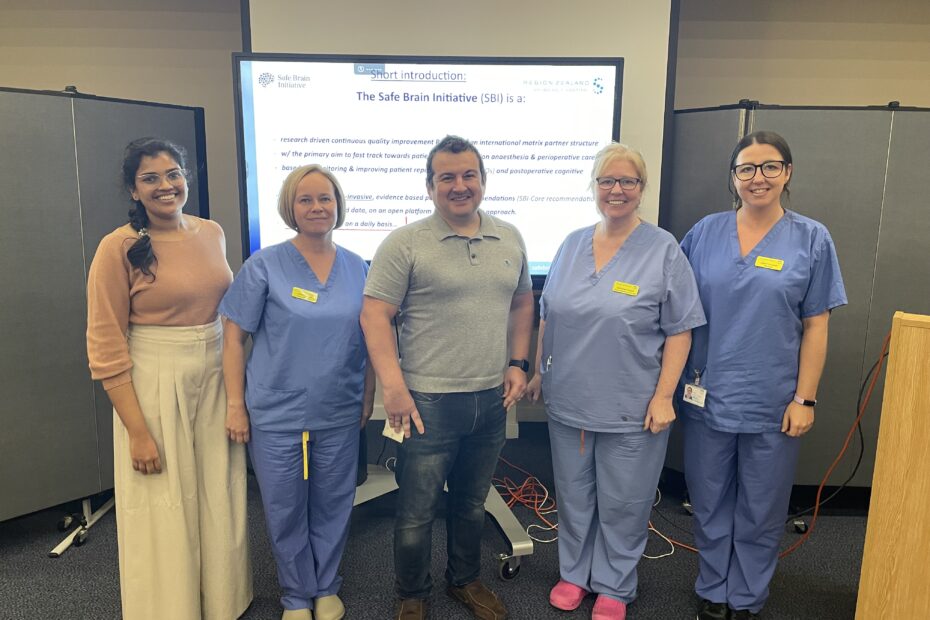
Royal Alexandra Hospital has become the first hospital in the UK to join a global network designed to reduce the risks associated with anaesthesia.
The Safe Brain Initiative, which has been endorsed by the European Society of Anaesthesiology and Intensive Care (ESAIC), aims to reduce delirium, confusion and cognitive decline in patients and improve outcomes by tailoring their care.
It encourages medics to follow up with patients and record the impact of anaesthesia on them in the hours, days and weeks after surgery.
The initiative looks at factors that could affect patient outcomes such as fasting times before procedures and how hydrated or cold they were when heading to the operating theatre.
This week, two leading experts in delirium, Professor Finn Radtke, from Denmark, and Katrina Jakobson, from Germany, delivered a masterclass at the RAH to anaesthetists from around Scotland and the UK to explain the SBI concept and how they can incorporate it into their own hospitals and departments.
Medical professionals travelled from Aberdeen, Edinburgh, Tayside, Highland, Lanarkshire and Ayrshire to take part in the two-day masterclass, and 30 delegates from across the UK attended a bootcamp on the use of processed EEG in anaesthetic monitoring.
| For the bootcamp, the team at RAH were joined by world further world experts, Professor Matthias Kreuzer, from Germany, and Dr Mark Barley from Nottingham. The SBI masterclass was supported by Medtronic, and the bootcamp was supported by Medtronic, Narcotrend and Fresenius Kabi. The events were aimed at giving anaesthetists the knowledge and tools to deliver precision anaesthesia, decrease delirium and cognitive decline, shorten hospital stays and improve patients’ experience. The incidence of delirium after anaesthesia is around 30 per cent, increasing with patients’ age. A patient who suffers delirium or cognitive decline is more likely to have to stay in hospital for longer as they require more support and it makes their discharge more complicated. The SBI, which is established in 12 centres around Europe and the Middle East, works by providing a structure and platform for assessing and recording Patient Related Outcome Measures in anaesthesia, including rates of delirium, pain, nausea and vomiting, thirst, throat discomfort, and overall satisfaction. The SBI also uses intraoperative brain monitoring to ensure patients are at the correct depth of anaesthesia to prevent awareness but also decrease the chance of delirium and confusion afterwards by avoiding overly deep anaesthesia. This is combined with recording any interventions performed to prevent poor outcomes in these areas such as the use of depth of anaesthesia monitoring, fasting times, pre-operative pain and nausea management, temperature management, and information provision. The project gives both overall departmental results as well as a confidential report to each user of their own individual outcomes that only they can access.This means both whole department and personal quality improvement projects can be initiated. The original SBI centres in Denmark have seen a 50 per cent drop in post-operative delirium rates, which has translated into a decrease in their mean length of stay of surgical patients by 36 hours. Analysis of this estimates that savings of around €20,000 per 1,000 patients in the system have been made. Consultant Anaesthetist Paul McConnell, who is based at the RAH and is a former chair of ESAIC’s Scientific Ethics Committee, has led on the SBI work at the hospital. He said: “This event was the first of its kind in Scotland and the UK, and we are so pleased that the RAH has been the pilot site for the SBI here. “We now have more than 750 patients on our database and through the initiation of the tenants of SBI we have managed to decrease our delirium rate from 32 per cent when we started to 23 per cent in the latest quarter. “We are now looking to build on this success by refining our bundles of care and follow-up to continue this improvement, enhance patient experience and contribute to international research on the understanding and prevention of post-operative delirium. “It’s a testament to the hard work of all my colleagues and in particular the RAH anaesthetic and recovery nursing staff that we’ve been able to achieve this. “Previously, there has been a focus on measuring mortality and major complications, but we know there are many more things that are important parts of the patient experience and outcome. SBI brings these back to the fore, particularly when they can have long-term impacts.” He added: “Using the SBI will allow us to ensure our care is individualised and patient-centred by using our own information and experience to tailor it to the person. “We know that delirium delays discharge for patients, which has knock-on impacts to the flow of the hospital and health service.” |
